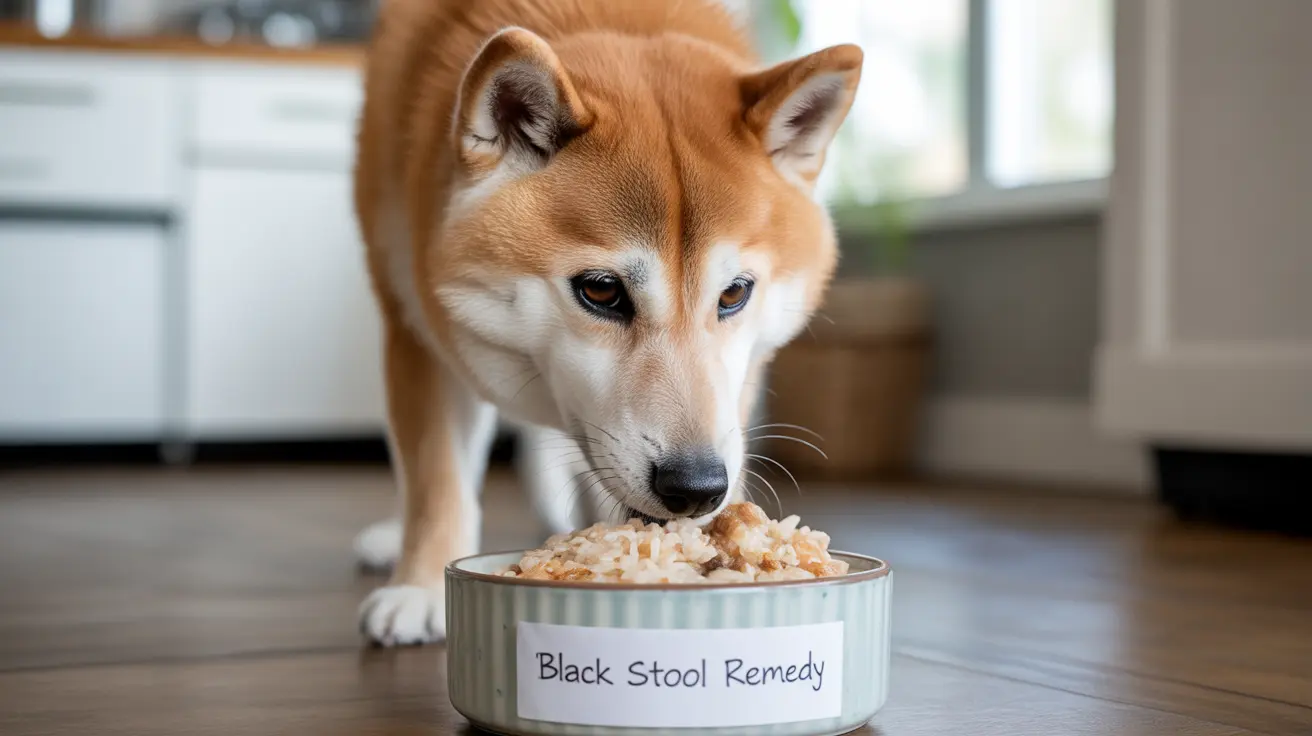Introduction
When your dog passes black stool, it can be a concerning sight that requires careful attention and appropriate action. This condition, medically known as melena, often indicates the presence of digested blood in your pet's gastrointestinal tract. While some cases may respond to home remedies, others require immediate veterinary intervention. Understanding when and how to treat black stool in dogs can make a crucial difference in your pet's health outcome.
This comprehensive guide will help you navigate the appropriate steps for treating black stool in dogs, recognize when home remedies are suitable, and identify situations that demand professional medical attention.
Understanding Black Stool in Dogs
Black, tarry stools in dogs typically indicate bleeding in the upper digestive tract, where blood has been digested before passing through the system. The characteristic dark color occurs when blood proteins interact with digestive enzymes, creating a distinctive tar-like appearance and consistency.
Common causes include:
- Ulcers in the stomach or intestines
- Parasitic infections
- Medication side effects
- Ingestion of blood from oral injuries
- Certain dietary factors
- More serious conditions like tumors or internal injuries
Safe Home Treatment Options
When black stool is caused by minor digestive upset or dietary changes, several home remedies may help resolve the issue:
Dietary Modifications
- Switch to a bland diet of boiled chicken and rice
- Feed small, frequent meals
- Remove any artificial colorings or new treats from the diet
- Ensure fresh water is always available
Natural Supplements
- Probiotics designed for canine gut health
- Slippery elm bark (with veterinary approval)
- Pumpkin puree for fiber
- Bone broth for hydration and nutrients
When to Seek Veterinary Care
While home remedies can be effective for minor cases, certain situations require immediate professional attention:
Emergency Warning Signs
- Multiple episodes of black stool
- Accompanying symptoms like vomiting or lethargy
- Loss of appetite or unusual behavior
- Pale gums or weakness
- Known ingestion of harmful substances
Prevention Strategies
Preventing black stool involves maintaining good digestive health and avoiding common triggers:
- Regular deworming schedule
- High-quality, consistent diet
- Proper supervision during walks
- Safe chew toys
- Regular veterinary check-ups
Frequently Asked Questions
What are the common causes of black stool in dogs and when should I be worried?
Black stool (melena) is often caused by bleeding in the upper GI tract. Be worried if it persists beyond one bowel movement, is accompanied by other symptoms, or if your dog shows signs of distress.
How can I safely treat my dog's black stool at home before seeing a vet?
Offer a bland diet of boiled chicken and rice, ensure proper hydration, and monitor closely. However, home treatment should only be attempted for minor cases with an obvious dietary cause.
What symptoms alongside black stool indicate my dog needs immediate veterinary care?
Seek immediate veterinary care if you notice lethargy, vomiting, pale gums, loss of appetite, weakness, or visible pain alongside black stool.
Can certain foods or medications cause black stool in dogs, and how do I identify them?
Yes, certain medications (especially NSAIDs), foods with dark coloring, and iron supplements can cause black stool. Keep a diary of your dog's diet and medications to help identify potential causes.
What diagnostic tests and treatments might my vet recommend for black stool in dogs?
Your vet may recommend blood work, fecal testing, X-rays, or ultrasound. Treatment options depend on the underlying cause but may include medications, fluid therapy, or surgery in severe cases.
Conclusion
While some cases of black stool in dogs can be managed with home remedies, it's crucial to approach this symptom with appropriate caution. Always err on the side of professional medical care when in doubt, as early intervention can prevent more serious complications. Monitor your dog closely, maintain good preventive care practices, and build a strong relationship with your veterinarian to ensure the best possible health outcomes for your furry friend.






